Given his significant public profile, you wouldn’t be blamed for thinking Professor Brian Schmidt rules the institution with an iron fist. But who really pulls the strings around the ANU?
Who will be overseeing the ANU’s response to the NSSS report? Who signed off on the construction of Kambri and other major construction projects? And who exactly are activists referring to when they berate the “University Administration?” The answer – the ANU Council.
According to the ANU website, the Council is responsible for the strategic oversight of the University, the governance and management of the University, and the financial and risk management of the University. The Chancellor and Vice-Chancellor are accountable to this 15-member council in the sense that they select who is appointed to the role, and for how long.
Analysis of the ANU Council reveals it is mostly populated by academics, activists, ANU staff members, and businesspeople. Notable characters include high-ranking business executives at KPMG, Wesfarmers, and Suncorp Group. Only two members of the ANU student body sit on the council, one undergraduate and one postgraduate. But is there room for more student input?
How Are Members Appointed to the ANU Council?
Of the 15 representatives on the council, seven members are appointed by the Minister for Education. Other seats on the council are reserved for specific representatives of the ANU faculty.
Woroni reached out to the Department of Education to outline how the minister appoints members to the ANU Council. The department informed Woroni that:
“The process for the Minister to appoint members to ANU Council is set out in section 10 of the Australian National University Act 1991 (ANU Act).”
“The Nominations Committee’s nominations must meet certain conditions set out in section 10 including the desirability of ensuring a balance of skills, expertise and gender on Council.”
“Subsections 10(7) – (9) of the ANU Act sets out the process as follows:
- Once the Minister receives the nominations from the Nominations Committee recommending that a person be appointed to the Council, the Minister has 60 days to appoint or decide not to appoint the person.
- If the Minister decides not to appoint he/she must notify ANU Council of the grounds for not appointing.
- The relevant considerations must relate to balance of skills, expertise, gender, and the periods (or proposed periods) of appointment.”
On 29 May 2020, the Council agreed to an offer of an annual honorarium of $35,000 made to external Council members. The purpose of this was to compensate for time away from council members’ primary occupations, which may result in forfeited income. All such honoraria were waived in 2020 in support of the University’s response to COVID-19.
Seven more members of the ANU council include academic, faculty and student members from within the ANU.
Who’s Who on the ANU Council?
The Hon Julie Bishop

Julie Bishop is one council member who needs no introduction. She serves as the Chancellor of the Council.
Prior to her role as chancellor of the ANU, she represented the seat of Curtin in Western Australia for 20 years as a member of the Liberal Party. She held numerous ministerial positions including Minister for Education, Science and Training, Minister for Women’s Issues, Minister for Ageing, and most notably, as Minister for Foreign Affairs.
Bishop has been praised by many for leading the global response to the downing of flight MH-17, for which she received the Commander of the Order of Merit of the Netherlands Ministry of Foreign Affairs.
Chancellor Bishop has also seen her fair share of controversies. In the 1980s, she represented the industrial company CSR as a solicitor and was tasked with defending the company against workers’ compensation claims. This involved defending against workers seeking compensation for the Wittenoom Asbestos mine. More recently, she was at the heart of a controversy which saw the ANU spend $800,000 on the construction of her office in WA.
As the Chancellor, Ms Bishop’s primary responsibilities are to provide appropriate leadership to the Council and to ensure the Council fulfils its obligations under its charter.
She is a member of five committees; including Council, COVID-19 Committee, Honorary Degrees Committee, Nominations Committee, and Remunerations Committee. Her term as Chancellor is set to expire on 31 December 2026.
The Chancellor is offered an annual honorarium of $75,000. In 2020, the Chancellor requested that honorarium not be paid to support the university’s response to managing COVID-19.
Professor Brian P. Schmidt AC FAA FRS
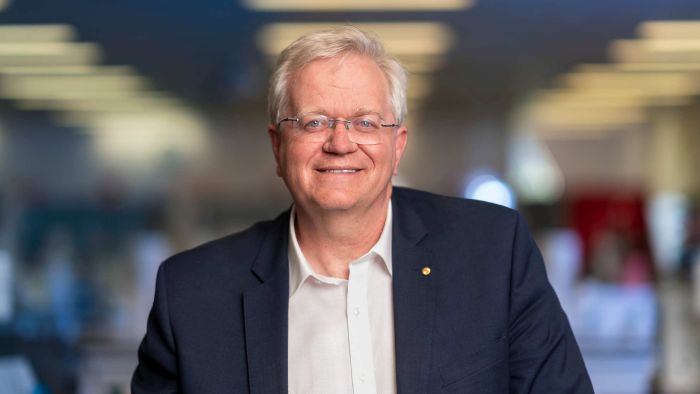
Professor Brian Schmidt, or as he is affectionately known as “Schmidtty” is the other council member almost everyone at the ANU would know.
Prior to becoming the Vice-Chancellor (VC) of the ANU, which is effectively a CEO position, Schmidt worked as an astrophysicist. Schmidt’s work in this role discovered that the universe is expanding at an ever-increasing rate.
In recognition of Schmidt’s contribution to the discipline, he received the 2011 Nobel Prize in physics. In 2013, he was made a Companion of the Order of Australia.
Professor Schmidt makes regular public appearances in the media, such as his appearances on Q&A, and outspoken criticism of what he deemed as political interference in the ARC’s research grants on “National Security grounds.”
As the Vice-Chancellor, Schmidt’s primary responsibilities are controlling and managing the affairs of the University; and the real and personal property at any time vested or acquired by the university.
Schmidt is a member of eight committees. These include the Academic Board, Campus Planning Committee, Council, COVID-19 Committee, Finance Committee, Honorary Degrees Committee, Nominations Committee, and Reconciliation Action Plan Working Group. His term is set to expire on 31 December 2025.
Seven Members Appointed by the Education Minister:
Ms Naomi Flutter

Ms Naomi Flutter currently serves as the Pro-Chancellor of the ANU Council, in other words, the deputy chancellor. Alongside this position, she is the Executive General Manager for Corporate Affairs at Wesfarmers limited.
In her early career, Flutter served under the UN High Commissioner for Refugees. She has also worked as head of Deutsche Bank’s global transaction banking division in Australia and New Zealand, starting the role in 2013. In 2018, she began her current role as the Executive General Manager of Corporate Affairs at Wesfarmers Ltd, a corporation which is ranked #9 on the ASX 200 market index (As of May 1, 2022).
Ms Flutter sits on seven committees, including the Campus Planning Committee, Council, COVID-19 Committee, Finance Committee, Honorary Degrees Committee, Nominations Committee, and the Remuneration Committee.
Earlier this year her term on the council was extended by Hon Stuart Robert MP until 30 June 2024.
Dr Doug McTaggart
Dr Doug Mctaggart is a former academic and businessman who has served as a director of Suncorp Group since April 2012. Suncorp Group Ltd. is currently ranked #32 on the ASX (as of 1 May 2022).
His prior career includes high-ranking positions in several corporations and in state public service including as CEO of QIC Ltd, under Treasurer of the Queensland Department of Treasury, and Director of UGL Ltd. He was also previously the chairman of Spark Infrastructure RE Limited and Suncentral Maroochydore. Mctaggart is also the Chairman of Indigenous Business Australia Asset Management Pty Ltd.
Dr McTaggart currently sits on four committees; including Council, COVID-19 Committee, Finance Committee, and Remuneration Committee. His term on the council will expire on 31 June 2023.
Ms Alison Kitchen

Ms Alison Kitchen, another senior business leader, is the National Director of KPMG Australia, and a director of the Business Council of Australia.
Ms Kitchen is the first female National Chairman of KPMG, and at any of the “big four” accounting firms in Australia. According to her Linkedin profile, she has served in the company for over 28 years.
Ms Kitchen sits on two committees: Council and the Finance Committee. Her term will expire on 30 June 2025.
Ms Anne-Marie Schwirtlich AM
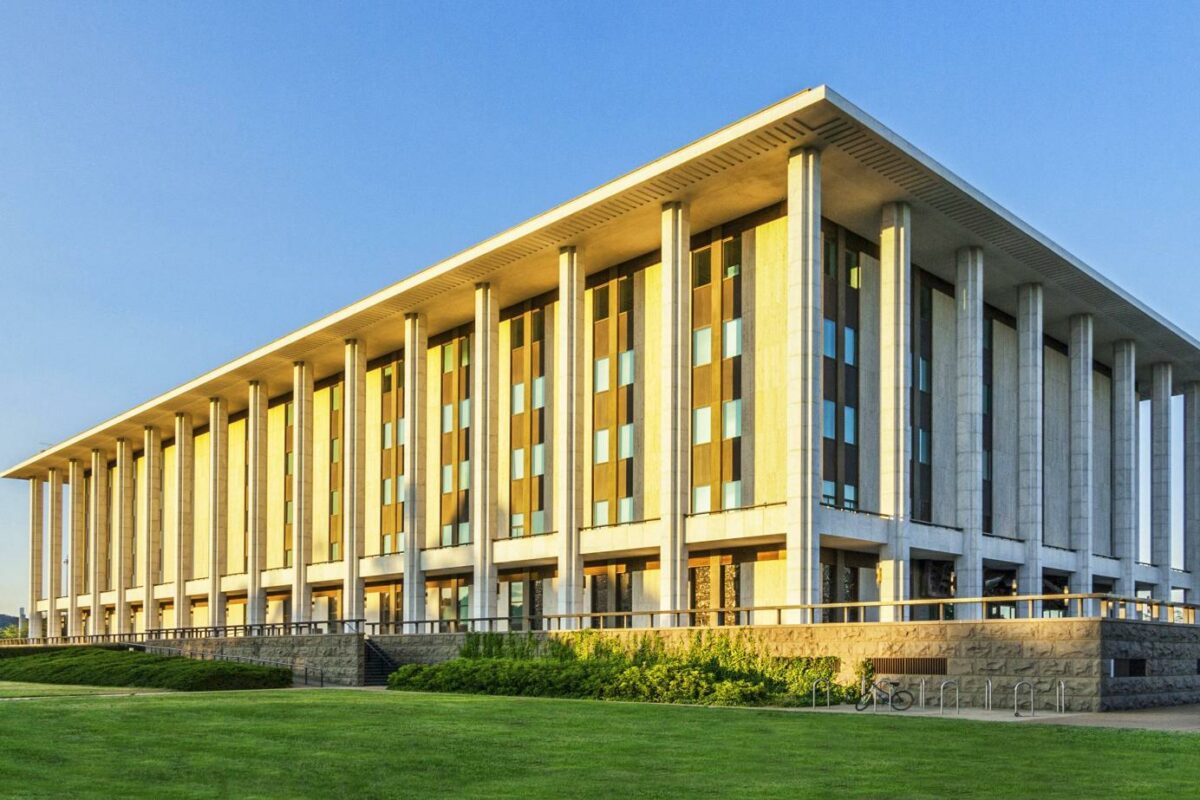
Anne-Marie Schwirtlich is the fourth council member appointed by the Minister. Unlike the other members who have distinguished themselves in their business careers, Ms Schwirtlich has distinguished herself through her career as an archivist. She is currently a member of the Selection Panel for the Tuckwell Scholarship.
Her career prior to her role on the ANU Council included service as the Director-General of the National Library of Australia between 2011 and 2017.
Ms Schwirtlich was ordained as a Member of the Order of Australia in 2015 for her service to the library and archives sector at state and national levels, and to professional management organisations. She is currently a fellow at the Australian Academy of the Humanities.
Schwirtlich currently sits on three committees; Audit & Risk Management Committee, Campus Planning Committee, and Council. Her term is set to expire on 30 June 2022.
Professor Suzanne Cory AC
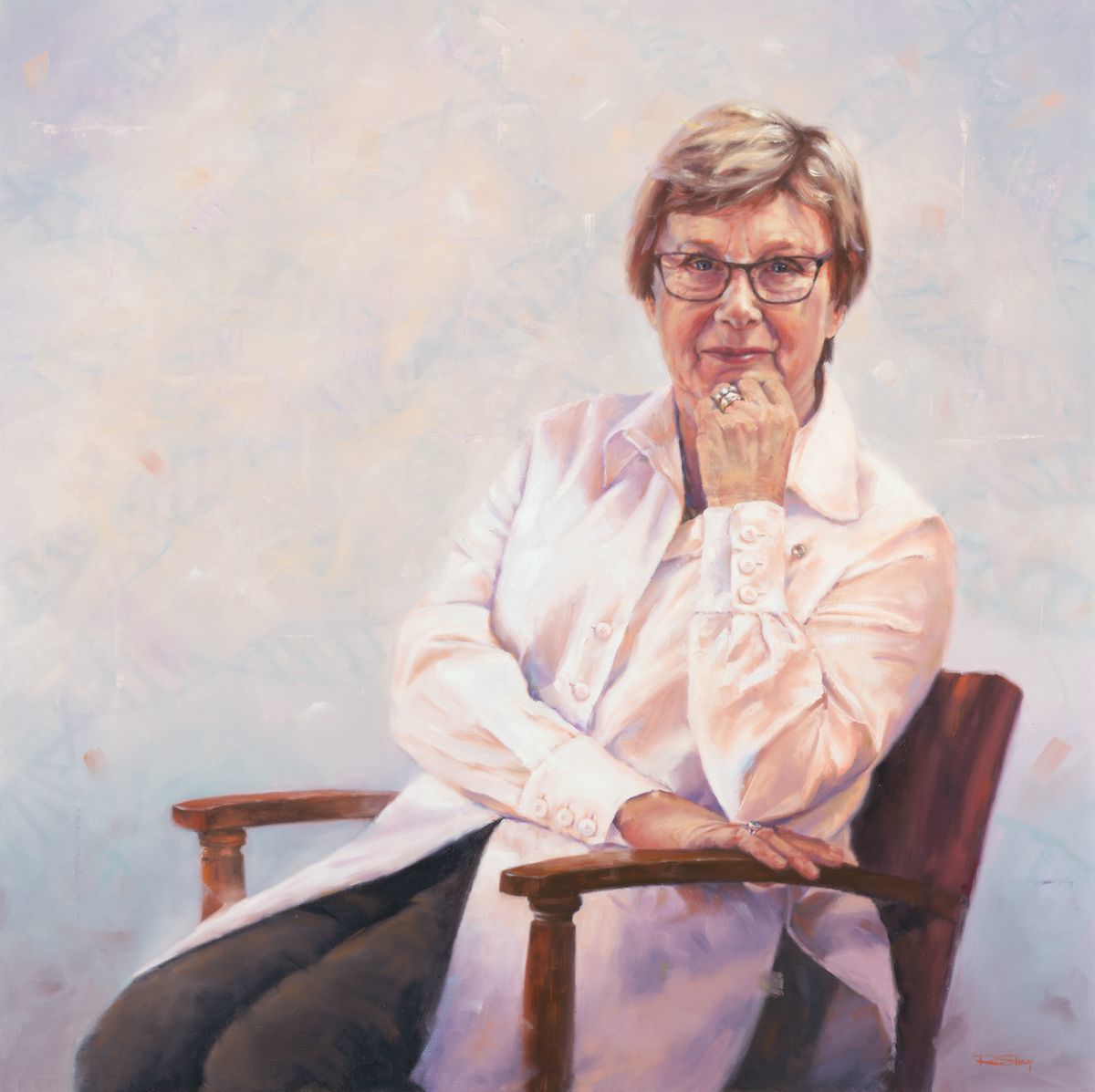
The ANU website states that Professor Cory is “one of Australia’s most distinguished molecular biologists. As the “AC” in her title suggests, she joins Schmidt as another Companion of the Order of Australia.
According to her Wikipedia page, Professor Cory is still active as a researcher, and is currently a faculty member of the Walter and Eliza Hall Institute of Medical Research.
Professor Corey is a member of two committees: Council, and the Honorary Degrees Committee. Her term will expire on 30 June 2022.
Ms Padma Raman PSM
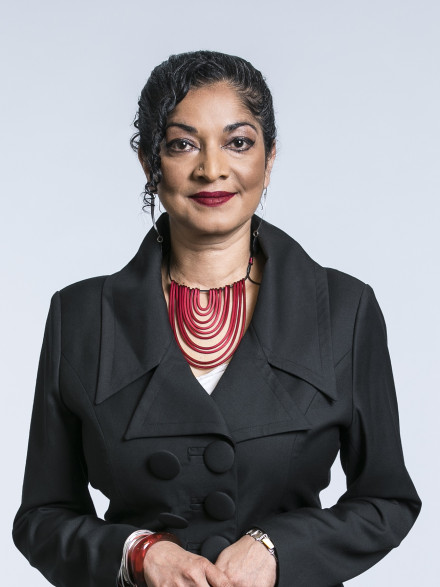
Padma Raman is the CEO of Australia’s National Research Organisation for Women’s Safety Limited (ANROWS) and has distinguished herself as a champion of civil and political rights.
In 2018, she was awarded the Public Service Medal in 2018 for her work on the Human Rights Commission. Alongside her work on the Council and ANROWS, Rama sits on the board of the Human Rights Law Centre.
At the ANU, Padma Raman sits only on the ANU Council. Her term will expire on 30 June 2025.
Ms Tanya Hosch

Tanya Hosch is a Torres Strait Islander with a long history of activism and engaging with companies on inclusion and advocacy. She currently works with the AFL as the General Manager of Inclusion and Social Policy where she is the first Indigenous person on their Executive, and second woman.
In 2016, Hosch was the Joint Campaign Director of the Recognise Movement for Constitutional Recognition and then a member of the Referendum Council that resulted in the Uluru Statement from the Heart in 2017. Additionally, she is a member of the Indigenous Advisory Group of the NAB, and the board of the Australian Film, Television and Radio School. Hosch acted as a Consultant on the 2019 ABC drama, Total Control.
In 2021, Hosch received an Australian of the Year Award for the state of South Australia and in 2015, Australian Women’s Weekly listed her as one of the 50 most powerful women in Australia.
Hosch currently serves on the ANU Council and the ANU’s Honorary Degree Committee. Her term will expire on 30 June 2024.
Academic and Professional Staff Representatives:
In addition to the members appointed by the Council, other members sit on the Council as elected representatives for their peers. This includes representatives for the interests of various staff, student, and academic positions.
Despite making up seven of the 15 seats of council, these members tend to sit on far fewer committees than those who are appointed by the Minister for Education. The term limits for each of these members are far shorter than those appointed by the Minister, with many candidates facing regular elections.
Professor Juliana Ng
Professor Julian Ng is the Dean and Research School Heads representative on the council. She is currently Director of the Research School of Accounting.
Alongside being a council member, Ng continues to teach at the ANU. Previous CBE students may recognise her from teaching BUSN2011 and BUSN7031. She is currently teaching the postgraduate course BUSN8200 Judgement and Decision Making Research in Accounting.
Ng sits only on the ANU Council.
Professor Asmi Wood
Professor Wood is the Academic Staff (Faculties) representative on the ANU Council. He currently teaches at the ANU Law School.
Professor Wood is both a Barrister and Solicitor. He is currently a director of The Australia Institute. His past experience includes working as the director of the National Centre for Indigenous Studies. He supports the ANU college of Law Indigenous Programme, and works alongside the Tjabal Indigenous Higher Education Centre. Wood currently teaches LAWS3238 Indigenous Australians and the Law.
Professor Wood sits solely on the ANU Council.
Professor Kate Reynolds
Professor Kate Reynolds is the Academic Staff (Institute) representative on the council and is a Professor of Psychology at the ANU.
According to her ANU Council profile, Reynolds’ current work involves a partnership with ACT Education to “make schools an important environment to build positive futures for young people”.
Professor Reynolds sits only on the ANU Council Committee.
Mr Millan Pintos-Lopez
Mr Pintos-Lopez is the Professional Staff representative on the ANU Council in addition to his duties as President of the National Tertiary Education Union (NTEU) ANU branch and as a WHS consultant.
Mr Millan’s role as a WHS consultant is located within the University’s Work Environment Group. He has also previously worked as a Senior Technical Officer within the School of Art and Design. Outside of his work within the ANU Council, Mr Pintos-Lopez works as Health and Safety Representative within the ANU WHS committee.
In terms of ANU council memberships, Mr Pintos-Lopez currently only sits on the ANU Council Committee. He is the newest addition to the ANU Council, with his term set to expire on 25 May 2024.
Ms Sonia Jeena
Ms Sonia Jeena is the postgraduate student representative of the council and is the International Officer of the ANU Postgraduate & Research Students Association (PARSA) in 2022.
As a representative for PARSA, Jeena’s interests include working for the underprivileged and equal rights.
Ms Jeena sits on four committees: the ANU Council, the Campus Planning Committee, the ANU Finance Committee and the Honorary Degrees Committee. Her term is due to expire on 20 December 2022.
Mr Christian Flynn
Mr Flynn is the undergraduate student representative on the ANU council, and is the ANUSA President in 2022.
His previous work experience includes as last year’s ANUSA Vice-President, President of Wamburun Hall, and Interhall Council Chair.
As a President of ANUSA, Flynn is passionate about advocating for residential hall students and to improve student services integration in ANU’s service provision.
Mr Flynn currently sits on two committees; the Academic Board and Council. His term is set to expire on 30 November 2022, when the ANUSA Presidential term expires.
Professor Joan Leach
Professor Leach is the Chair of the Academic Board representative, which is the only non-voting position on the ANU Council. She is currently the Director of The Australian National Centre for Public Engagement with Science. She is also currently the National Committee for History and Philosophy of Science at the Australian Academy of Science
Purdue University awarded Professor Leach with a science laureateship for services to public engagement with science.
Professor Leach’s term on the ANU council is ex-officio.
Running the Numbers on the ANU Council Committee System
The seven ANU council committees represent one avenue which privileges certain Council voices over others in providing advice on the future direction of the ANU. Additionally, some members sitting on these councils are members of Academic Committees.
Analysis of committee memberships paints a picture showing that those individuals from corporate backgrounds are assigned to far more committees. Additionally, the committees they are assigned to tend to be more impactful upon the operation of the University.
The Australian National University Act 1991 governs the delegation of council powers to committees. It stipulates that any function or power delegated to committees must be exercised by a majority of a committee, acting jointly, and may not otherwise be performed or exercised under the delegation.
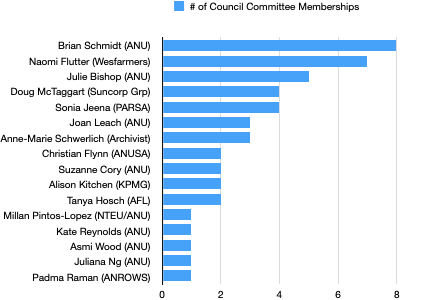
Of the 47 committee seats held across ANU council, close to half (22 seats) are held by ANU staff, around a third (15 seats) are held by business leaders, and the remaining seats are held by leaders from student groups (six seats), the public service (three seats), and research organisations (one seat).
Ms Flutter, a Wesfarmers executive (who is also the pro-chancellor), sits on seven committees and Dr Doug McTaggart, a Suncorp Group exec, sits on four.
Although Alison Kitchen (the National Director of KPMG) only sits on two committees, one of those is the finance committee – which you could argue serves a much more critical role to the operation of the university than, say, the Honorary Degrees Committee. McTaggart chairs this council, while Flutter also sits on the council.
The other two other members appointed by the Education Minister to the Council, who are not business executives, are members of far fewer and less operationally-oriented committees.
Woroni asked ANU representatives which committees were regarded as more important and influential:
“All committees of Council at ANU make a vital contribution to the strategic oversight of the University. Key committees include, for example, the Audit and Risk Management Committee, the Campus Planning Committee, the Finance Committee and the Academic Board. [The] Council relies on the expert advice of its committees and the Academic Board to discharge its duties effectively and to make key strategic decisions throughout the year.”
Padma Raman, the CEO of ANROWS (a research organisation for women’s and children’s safety) only sits on council. Tanya Hosch, who has distinguished herself through her work campaigning for inclusion and the Recognise Movement for Constitutional Recognition, only sits on two committees (Honorary Degrees Committee and Council).
Both student positions are also scarcely underrepresented in committee memberships, with the undergraduate member sitting on two committees (Academic Board and Council) and the postgraduate member sitting only on the Council.
Students pay tens of thousands of dollars to attend this university and thus have a tangible stake in the management of the University. These include decisions such as the Kambri redevelopment (which had a proposed cost of $260 million), overseeing the University’s response to the NSSS survey, and whether to establish the controversial degree on Western Civilisation, sponsored by the Ramsay Centre.
Obviously, it is difficult to create a precise power-ranking of each council member. Nonetheless, it’s important to consider whose voices are present more broadly across the ANU Council.
Could There Be a Better Alternative?
As it exists currently, students have limited representation on the ANU council. Furthermore, the majority of ANU seats on committees are held by senior leadership members.
Woroni reached out to ANUSA’s Education Officer, Beatrice Tucker for their thoughts on whether the ANU Council operates in the interests of students.
They were disappointed by the lack of representation of student interests in the council, evidencing that, “there’s one undergrad[uate] and one postgrad[uate] to represent over 22,000 students, five representatives for over 4000 staff.”
The Education Officer expressed concern over whose interests external members of the council represent, be it the interests of shareholders, insurance companies, and the like: “Why are their interests being represented, when ours hardly are?”
When asked what this tells us about the future direction of the ANU, Tucker was shared that “ANU is in trouble, quality education is surrendered to corporate interests” raising that “ANU grows flaccid to the whim of the government – with no reward for its inaction.’’
Tucker is hopeful for change and outlined their vision for an ANU Council more responsive and representative to the interests of staff and students:
“Lecturers, Researchers, Staff and Students make up the daily workings of this university, and it’s only these people that know what’s needed for our university both now and tomorrow.”
Editor’s note (30/5): An earlier version of this article stated that Sonia Jeena was a member of only one committee, however in fact is part of four committees, though this is not reflected on the ANU website. This article has since been amended to clarify that Jeena is on four committees, and the graph has also been updated. We apologise for this error.
We acknowledge the Ngunnawal and Ngambri people, who are the Traditional Custodians of the land on which Woroni, Woroni Radio and Woroni TV are created, edited, published, printed and distributed. We pay our respects to Elders past and present. We acknowledge that the name Woroni was taken from the Wadi Wadi Nation without permission, and we are striving to do better for future reconciliation.
